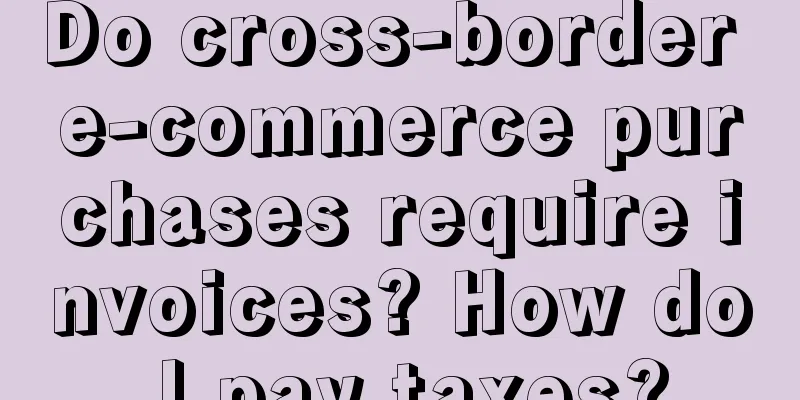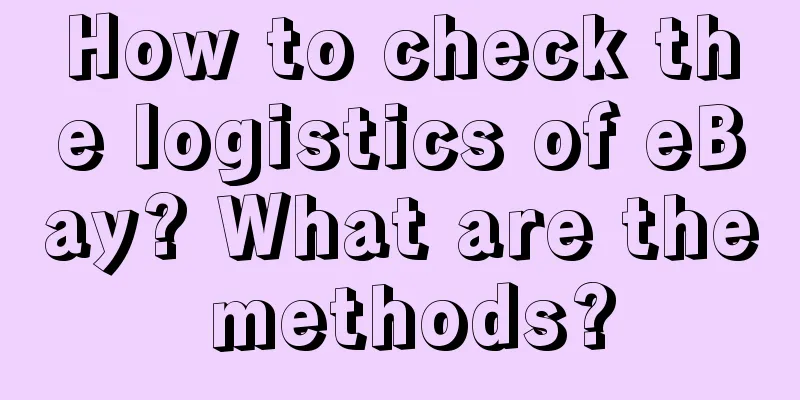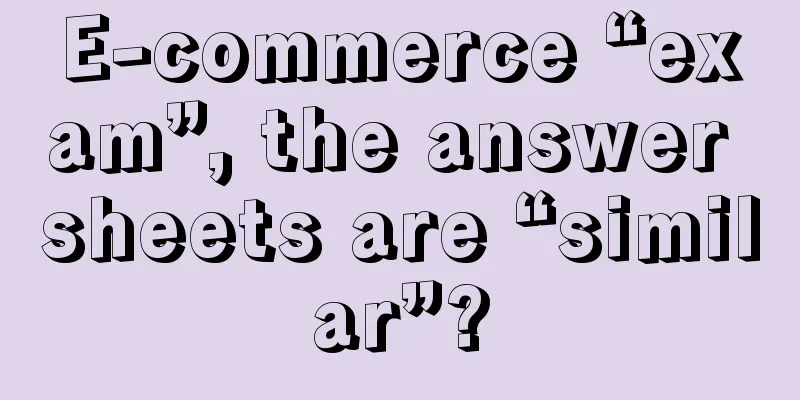Do cross-border e-commerce purchases require invoices? How do I pay taxes?

|
With the development of globalization and the popularization of Internet technology, cross-border e-commerce has become an indispensable part of people's daily life. In cross-border e-commerce purchases, the issue of invoices is often mentioned. So, do cross-border e-commerce purchases require invoices? 1. Do cross-border e-commerce purchases require invoices? In cross-border e-commerce purchases, invoices are a very important document. Invoices can not only serve as proof of purchased goods, but can also be used for customs declaration, tax payment and other links. In addition, in some cases, consumers can also use invoices to protect their rights and interests, such as returning or exchanging goods or repairing goods when there are quality problems. Therefore, cross-border e-commerce purchases require invoices. 2. How to pay taxes? In cross-border e-commerce purchases, the main taxes involved are import tariffs, value-added tax, and consumption tax, etc. Depending on the type of goods and the regulations of the importing country, the taxes to be paid will also vary. Import tariffs: Import tariffs refer to the taxes that need to be paid when goods enter the customs territory of the importing country. The import tariff rate varies according to the different types of goods and the regulations of the importing country. Value-added tax: Value-added tax refers to the amount of value-added tax generated during the sale of goods. The rate of value-added tax varies according to the type of goods and the regulations of the importing country. Consumption tax: Consumption tax is a tax imposed on certain goods or services. The rate of consumption tax varies depending on the type of goods and the regulations of the importing country. In cross-border e-commerce purchases, there are two main ways to pay taxes: one is for consumers to pay by themselves, and the other is for cross-border e-commerce platforms to withhold and pay taxes on their behalf. If consumers choose to pay by themselves, they need to declare and pay the corresponding taxes to the customs when the goods are imported. If consumers choose to have cross-border e-commerce platforms withhold and pay taxes on their behalf, the cross-border e-commerce platforms will deduct the corresponding taxes when the goods are sold and declare and pay them to the customs. It should be noted that different countries and regions may have different tax policies for cross-border e-commerce purchases, and the specific tax payment methods and tax rates may also vary. Therefore, when making cross-border e-commerce purchases, it is necessary to understand the local tax policies and regulations in order to better handle taxes. Recommended reading: Which platform should I choose for my personal cross-border e-commerce business? What are the requirements for entry? How much does it cost for personal cross-border e-commerce? Do I need a deposit? Can cross-border e-commerce personal trademarks be registered? What are the regulations? |
Recommend
Does Amazon’s new product support period start from the time it is launched on the shelves?
Amazon merchants need to put products on the shelv...
What should Shopee do next after connecting with the operations manager?
We know that there are many benefits of connecting...
How to upload products in Wish? What should I pay attention to?
There are many differences between cross-border e-...
A common misunderstanding in brand naming, two fundamental origins
This article starts from the common misunderstandi...
On Douyin, no one can escape the abstract live streaming of goods, which is much more abstract than the shaman dance.
From the rich lady character of Macau's Coco S...
Which is better, Amazon US or Amazon Europe?
The US site is Amazon's largest main site. Its...
Pre-sale disappears, "Cat and Dog" compete for users, and "Doupin" adds fuel to the fire
The essence of canceling pre-sales on June 18 is t...
Another batch of brands have been blocked by Xiaohongshu
Recently, Xiaohongshu issued a public notice on vi...
AI "invades" content platforms, are creators ecstatic?
AI can perform repetitive and tedious tasks, there...
GPT-5 is coming? OpenAI's latest large model is exposed!
In recent times, Google's progress in large AI...
The most comprehensive summary of methods for reporting video account violations and flow restrictions on the entire network!
As an emerging social media platform, Video Accoun...
Is it easy to build an independent website now? Is it still possible to build an independent website?
There is less competition on independent websites,...
Why can’t the Arctic Ocean be sold for 6 yuan?
Arctic Ocean has been questioned due to its high p...
How to change the address of Amazon orders? What are the steps?
When opening a store on the Amazon platform, each ...
Three revelations from Apple's premiere
This article describes the author’s motivation for...









